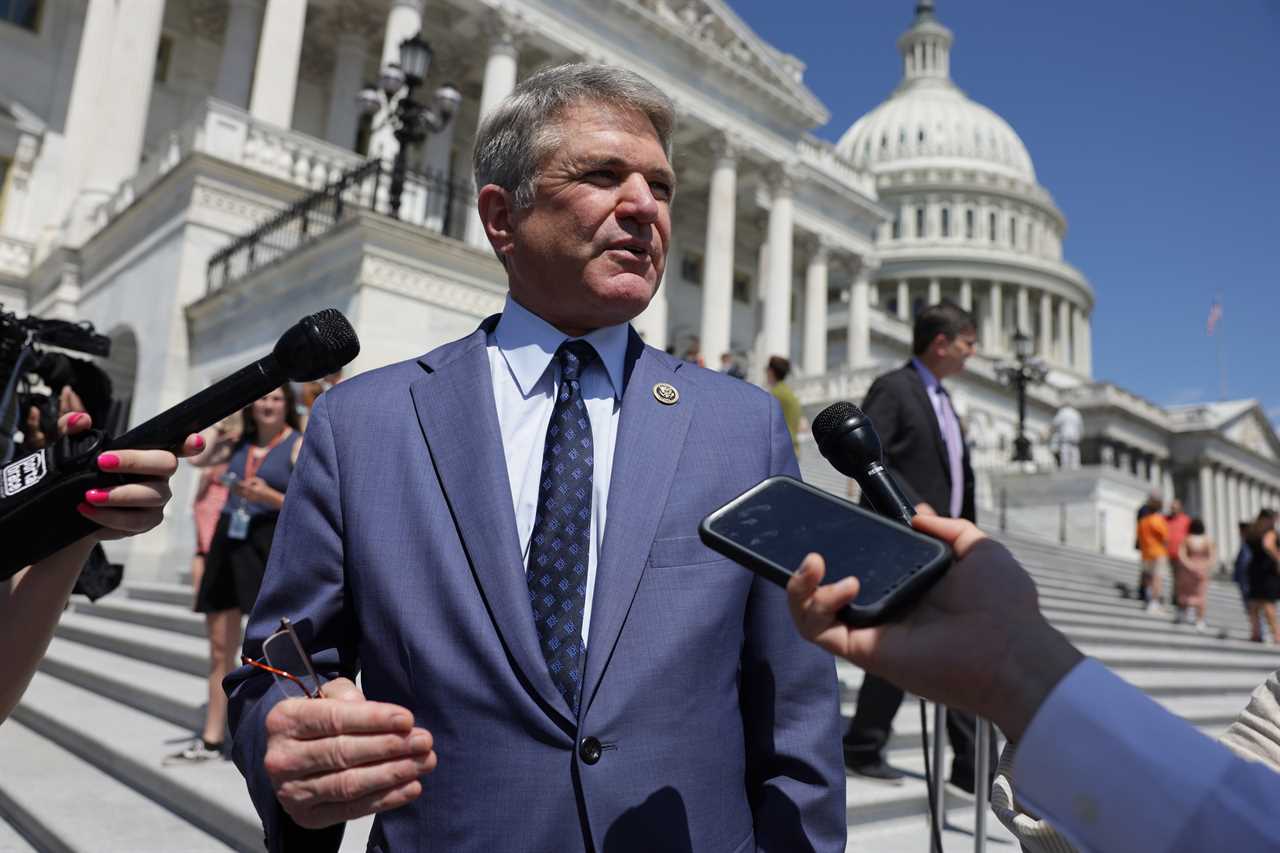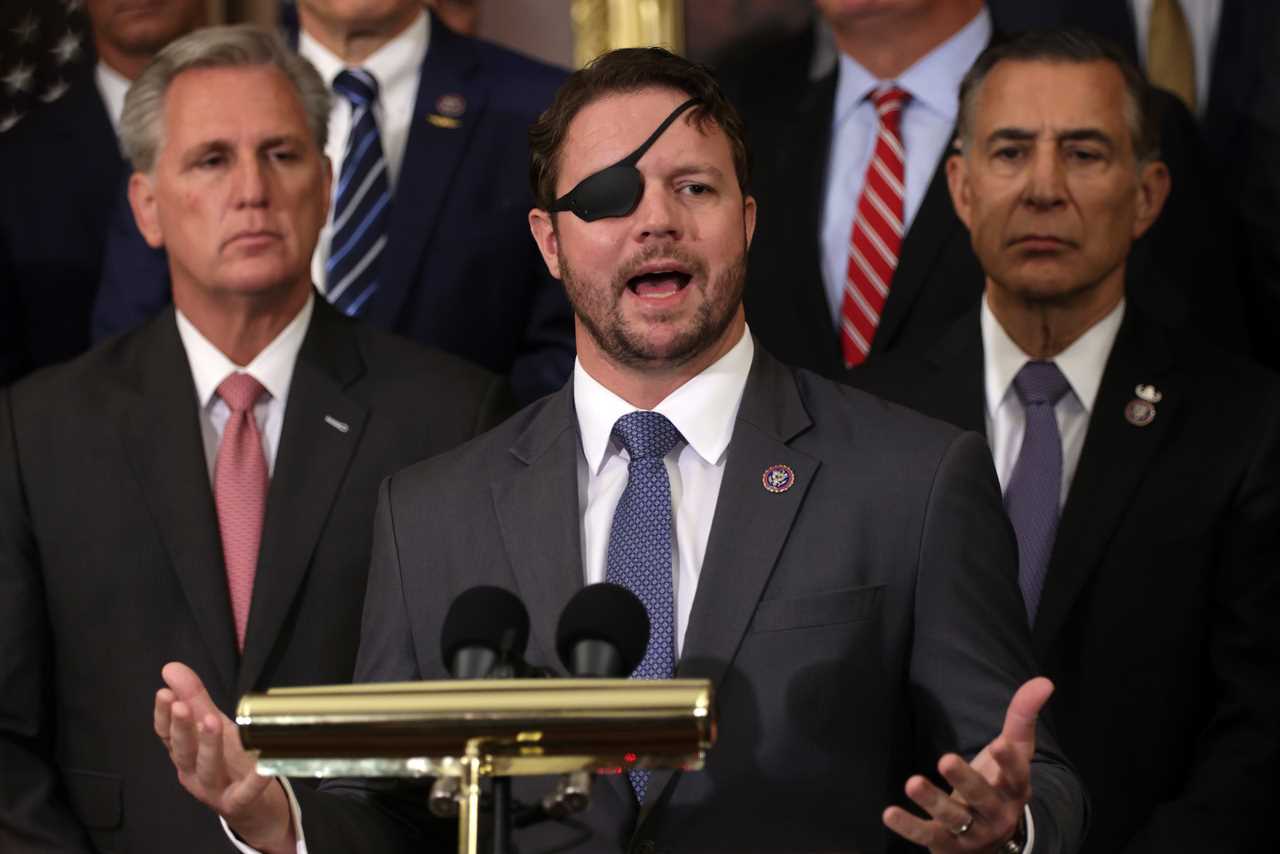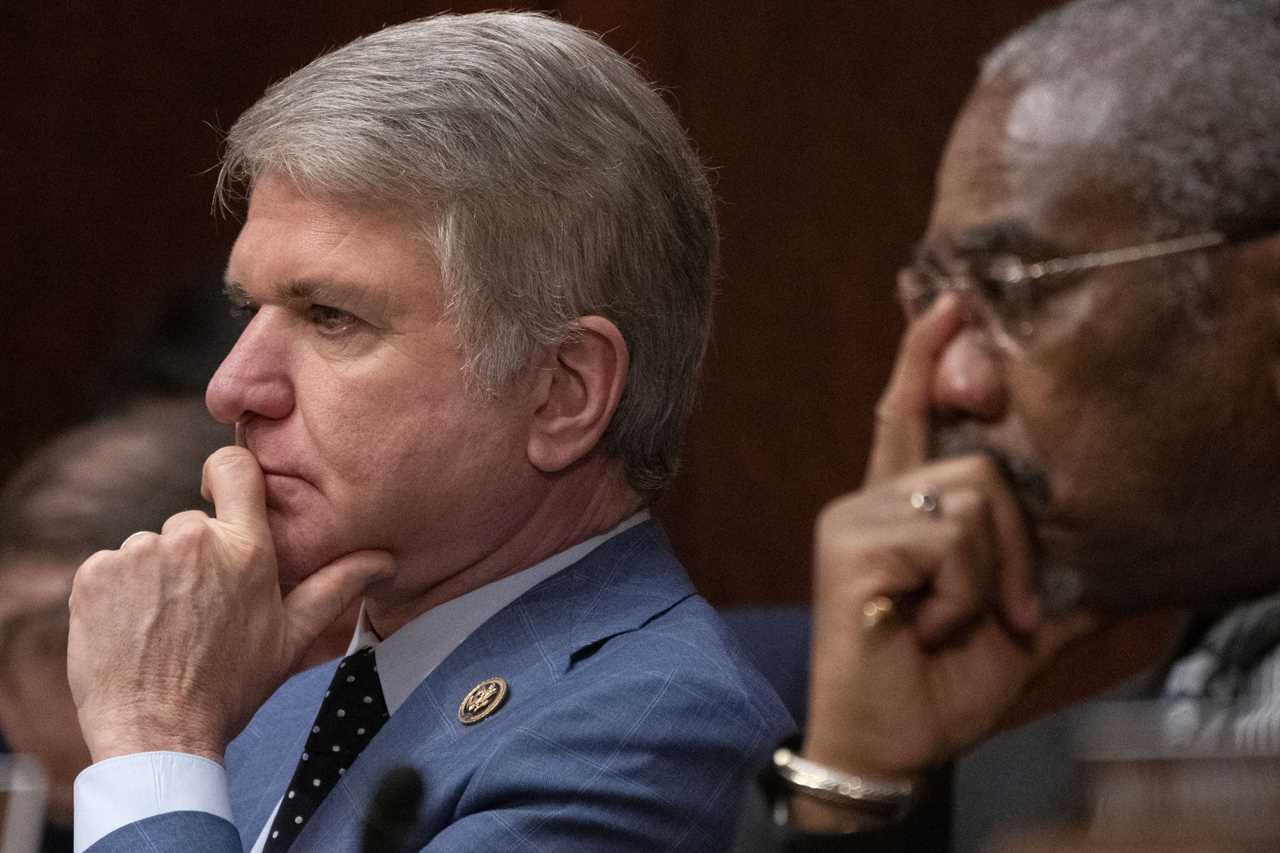
Michael McCaul's children have lost five friends to fentanyl. That tragedy has led him to embark on a difficult task in partisan Washington: selling his fellow Republicans on a deal with the Democrats.
The Texan is using his chair on the House Foreign Affairs Committee to support President Joe Biden’s diplomacy with Mexico, the source of the illicit fentanyl that’s causing tens of thousands of fatal overdoses, and to promote bills that would give Biden more tools to fight the cartels.
In so doing, McCaul is crossing GOP colleagues who want to highlight Biden’s flagging battle against the deadly synthetic opioid, and he’s pushing for floor votes at a time when the House is focused on electing a speaker and funding the government. The threat is urgent, he says, and new sanctions against the fentanyl supply chain could save lives.
“My son came back from a funeral two weeks ago. His best friend died,” he told POLITICO this summer, adding that the scope of the problem demands the U.S. do more. “My oldest daughter has been to four funerals, all from high school friends.”
The McCaul family’s close encounter with the fentanyl crisis is becoming tragically common: Nearly 110,000 Americans died of drug overdoses last year. That figure spiked from around 70,000 before the Covid pandemic, according to the Centers for Disease Control and Prevention, and has shown no signs of abating.
The Drug Enforcement Administration announced late last month that it has since January seized more than 55 million fentanyl pills, exceeding its 2022 haul with months left in the year.
Still, getting fellow Republicans to back bipartisan legislation — which Biden could champion as a win — is a tough sell. In Congress, many in the GOP have seized on the bad news to call out Biden, tying it to what they see as the president’s lax border security policies. In July, then-Speaker Kevin McCarthy assembled a task force on combating the cartels to draw attention to the GOP’s willingness to take the fight to them.
The task force’s leader, Rep. Dan Crenshaw (R-Texas), whose suburban Houston district sits just to the east of McCaul’s, has laid the blame at Biden’s feet for his handling of the border. A former Navy SEAL, Crenshaw has proposed a resolution to authorize the use of military force against Mexico’s cartels.

“The cartels have operational control over our southern border, facilitate and take advantage of our immigration crisis,” he said in a statement after McCarthy named him.
McCaul, whose panel has jurisdiction over Crenshaw’s resolution to authorize military force, hasn’t brought it up. He said he believes belligerency risks alienating Mexico, which he considers an ally in the fight, while driving more migrants to the border.
“They’re political stunts, and it won't change the way business is really done,” McCaul said.
That annoyed Crenshaw, who told POLITICO that “McCaul knows better” and “shouldn’t have said that.”
Still, McCaul’s effort to find a middle ground has intrigued Democrats, who are desperate to make headway in combating the fentanyl scourge.
A White House official granted anonymity to discuss cooperation with a GOP member of Congress said the administration wants to continue working with McCaul “on legislative actions that will further our shared objective.”
McCaul told POLITICO in a statement that he’s committed to seeing his legislation through. “We owe it to the families who have lost so much to have a floor vote.”
A former counterterrorism and national security chief in the Texas U.S. Attorney’s office, McCaul is making a case for cooperation, both with Biden and with Mexico’s populist president, Andrés Manuel López Obrador. Finding ways to bring down the number of overdose deaths is that important, he said, even though success could work to Biden’s benefit in next year’s election.
He’s proposed bipartisan legislation with his panel’s ranking Democrat, New York’s Gregory Meeks, to empower Biden to sanction cartels and those who help them. And he wants to convince López Obrador to allow U.S. Customs and Border Protection agents to help police Mexico’s ports, where U.S. officials say that chemicals needed to make fentanyl arrive by boat from China.

That will require cooperation from López Obrador, who has at times extended a hand and at others denied that fentanyl is produced in his country, accused U.S. lawmakers of scapegoating and said the U.S. might not have an overdose crisis if Americans hugged their children more.
McCaul thinks he can lend some bipartisanship to Biden’s efforts to get through to the mercurial Mexican. “I'm gonna have a trip down to meet with the officials down there to talk about the importance,” McCaul said. “We've now lost 70,000 children.”
McCaul — alongside with Meeks and fellow Texan Henry Cuellar, another Democrat — met in late September with Mexico’s new foreign affairs secretary, Alicia Bárcena, in Washington to discuss stopping fentanyl from flowing into Texas, McCaul’s staff posted on X, the former Twitter.
That’s in stark contrast to Crenshaw’s approach, who proposed a resolution condemning López Obrador in April after the Mexican threatened to try to convince voters to oust Republicans from office for bringing up the use of force against Mexico.
McCaul said that in his first term in Congress, nearly two decades ago, he also introduced legislation to that end.
He now realizes that diplomacy works better than threats. “Authorizing use of military force against an organization in Mexico is essentially declaring war against Mexico, and… they’re our largest trading partner,” McCaul said.
More violence in Mexico would also legitimize asylum claims, leading to a spike in the number of migrants seeking to come to the U.S., McCaul believes.
“When I talk about this, then the light bulb does come on: ‘Oh, I didn't think about that,’” McCaul said about the argument he’s making to his GOP colleagues who want to use force.
To stem the flow of fentanyl into the U.S., McCaul wants to stop raw chemicals, sourced mainly from China, from entering Mexico through ports like Manzanillo, on the country’s Pacific coast. The CBP could work with the Mexican Marines and Navy, which McCaul sees as reliable, and use new technology to detect and seize these chemicals, he said.

He also authored a bill aiming to disrupt the flow of these chemicals to Mexico by placing them and illicit fentanyl on the list of substances regulated by the international Chemical Weapons Convention. Cosponsored by 10 other Republicans, the Foreign Affairs Committee approved the bill in May.
And while Democratic Reps. Joaquin Castro of Texas and Sara Jacobs of California were skeptical about the feasibility of the proposal, given that fentanyl is a commonly prescribed painkiller, Meeks assured them that he had worked with McCaul to ensure the classification of the drug under the convention would not hinder its legal use.
Targeting the raw chemicals to manufacture fentanyl is a strategy shared by California’s Ami Bera, the ranking Democrat on the Foreign Affairs Indo-Pacific Subcommittee, who held talks on fentanyl in Mexico City in September.
“He’s in a border state and he certainly, I think, sees the impact first hand,” Bera said of McCaul.
McCaul has also authored a bipartisan bill imposing sanctions on drug cartels and other criminal organizations for trafficking illicit fentanyl and its raw materials, a companion to Senate legislation that the Banking, Housing and Urban Affairs Committee approved in June.
McCaul said he worried that Texans going south to fill prescriptions may get exposed to fentanyl after the illicit drug was found in medicines bought at legitimate pharmacies in Mexico.
But McCaul’s window to bring his colleagues and the Biden administration together is closing as next year’s presidential election looms, giving Republicans a reason to resist a legislative agreement that Biden could tout as an example of his ability to forge bipartisan solutions.
That’s a rhythm tied to election cycles McCaul has seen many times in his nearly 20 years on Capitol Hill. “We legislate the first year and then we have political fights the second,” he said.
----------------------------------------
By: Carmen Paun
Title: Fentanyl’s toll has this Republican reaching out to Democrats
Sourced From: www.politico.com/news/2023/10/15/michael-mccaul-fentanyl-crisis-00120384
Published Date: Sun, 08 Oct 2023 07:13:18 EST






